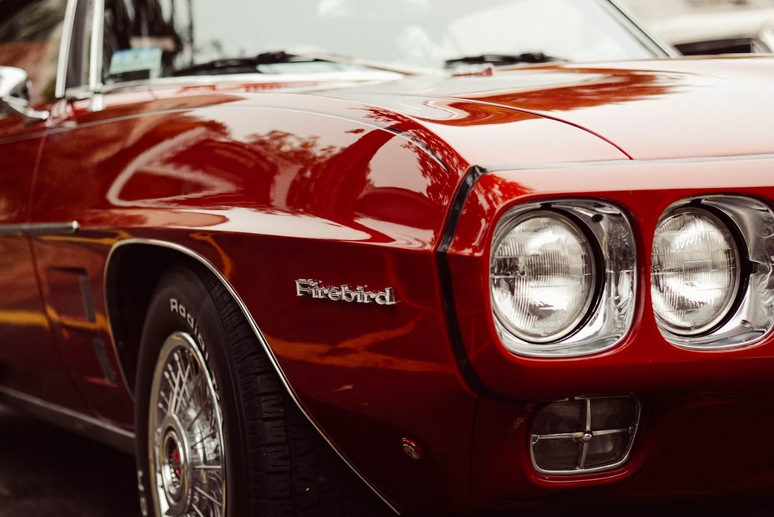Are you a classic car enthusiast with dreams of owning your own vintage beauty? Well, attending a classic car auction might just be the ticket to turning that dream into a reality. The owner of Beverly Hills Car Club, Alex Manos, mentioned that classic car auctions are not only exciting events where rare and iconic vehicles go under the hammer, but they also offer enthusiasts like yourself an opportunity to bid on and potentially acquire your very own piece of automotive history.
But before you dive headfirst into the bidding frenzy, it’s important to arm yourself with some insider tips for successful bidding. Keep on reading to learn invaluable advice to help you ace a classic car auction like a pro.
Get Your Homework Done First
Before you even think about raising your bidding paddle, it’s crucial to do your homework. Research is key when it comes to classic car auctions. Start by familiarizing yourself with the specific auction house hosting the event. Each one may have its own rules, procedures, and fees that you need to be aware of. Next, take the time to research the vehicles up for auction. Look into their history, condition reports, and any available documentation. This will give you a better understanding of what you’re bidding on and help you determine an appropriate maximum bid. Additionally, consider setting a budget for yourself before attending the auction. It’s easy to get caught up in the excitement of the moment and overspend on a vehicle that may not be worth its price tag.
Attend the Preview
 Attending the preview is an absolute must-do. This is your chance to get up close and personal with the vehicles that will be going under the hammer. It’s your opportunity to carefully inspect each car, inside and out, checking for any signs of damage or maintenance issues. During the preview, take your time and don’t rush through the cars. Pay attention to every detail – from the condition of the paintwork to any visible rust or dents. Open doors, sit in seats, test out windows – make sure everything is in working order. Another benefit of attending a preview is that you can ask questions. The auction staff are usually on hand during this time and are more than happy to provide additional information about each vehicle.
Attending the preview is an absolute must-do. This is your chance to get up close and personal with the vehicles that will be going under the hammer. It’s your opportunity to carefully inspect each car, inside and out, checking for any signs of damage or maintenance issues. During the preview, take your time and don’t rush through the cars. Pay attention to every detail – from the condition of the paintwork to any visible rust or dents. Open doors, sit in seats, test out windows – make sure everything is in working order. Another benefit of attending a preview is that you can ask questions. The auction staff are usually on hand during this time and are more than happy to provide additional information about each vehicle.
Understand the Fees
When participating in classic car auctions, try understanding the various fees associated with bidding and purchasing a vehicle. It’s crucial to have a clear understanding of these costs before you start bidding, as they can significantly impact your budget. Most auction houses often charge a buyer’s premium. This fee is typically a percentage of the final bid price and is added on top of it. The buyer’s premium can range from 5% to 15%, so make sure you know what percentage will be applied before placing your bids. Additionally, some auctions may also charge an entry fee for bidders who wish to participate in person or online. This fee covers administrative costs and helps ensure that only serious buyers are involved in the process.
Avoid Emotional Bidding

Like any other auction, emotions can run high here. The allure of owning a coveted vintage vehicle can definitely cloud judgment and lead to impulsive bidding. But, remember that successful bidding requires a cool head and strategic thinking. One way to avoid emotional bidding is by setting a strict budget before attending the auction, as mentioned. Another helpful tactic is conducting thorough research on the cars you’re interested in prior to the auction. Additionally, try not to get too attached to one specific car. Keep an open mind and consider multiple options so that if your preferred vehicle gets bid beyond your budget or doesn’t meet your expectations during the inspection, you won’t feel compelled to overbid out of desperation or attachment.
Clarify Title Transfer
During the preview or inspection period, take the time to ask questions about the title transfer process. Will there be any additional fees or paperwork involved? What documents will you need to provide in order to complete the transfer? By clarifying these details beforehand, you can avoid any surprises or delays after winning an auction. It’s always better to have a clear understanding of what is required from both parties involved in the transaction.
In conclusion, classic car auctions can be thrilling events for car enthusiasts and collectors alike. However, successful bidding requires careful preparation and knowledge of how these auctions work.

